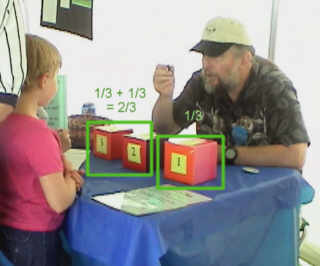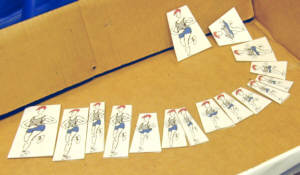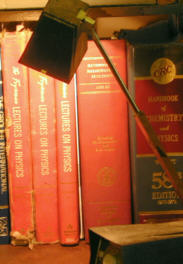Jerry
Andrus
based on deep understanding of human perception.
But the
magic in math peers past the edges of human comprehension.
It's perception of the deeper patterns in the world. |
There are two kinds of geniuses: the "ordinary" and the "magicians." An ordinary genius is a fellow whom you and I would be just as good as, if we were only many times better. There is no mystery as to how his mind works. Once we understand what they've done, we feel certain that we, too, could have done it. It is different with the magicians. Even after we understand what they have done it is completely dark. Richard Feynman is a magician of the highest calibre. Mark
Kac
(in Phyics Today) |





 What
is the direction, up or down, of the
acceleration
of
a freely bouncing ball at the bottommost point of its bounce, that is,
at the instant its velocity changes from down to up?
What
is the direction, up or down, of the
acceleration
of
a freely bouncing ball at the bottommost point of its bounce, that is,
at the instant its velocity changes from down to up?














